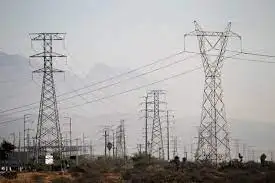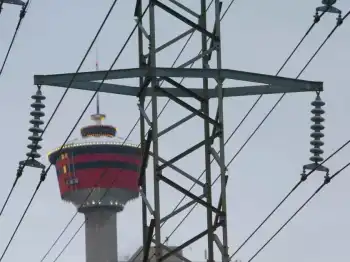Greens spell progress “Recession”
By Investor's Business Daily
High Voltage Maintenance Training Online
Our customized live online or in‑person group training can be delivered to your staff at your location.

- Live Online
- 12 hours Instructor-led
- Group Training Available
The U.N. says the 40 signatories to the Kyoto treaty have, on average, cut their emissions to 5% below their levels of 1990 — just meeting the goals for 2008 to 2012. So on the surface, things look very good.
But the data are deceiving. As the publication the New Scientist noted, "Much of the 17% drop is a consequence of the economic downturn of eastern and central European nations in the 1990s."
"Downturn" is almost too polite a term. Take the period right after the collapse of communism in 1990, when many countries in the area were struggling to rebuild their economies after decades of top-down stagnation. This economic implosion led to a 37% drop in greenhouse gas emissions among the so-called "economies in transition" from 1990 to 2006.
In other words, it took a regional depression for Kyoto to meet its goals, as data from renowned economist Angus Maddison show.
For the seven main economies in Eastern Europe — Albania, Bulgaria, Czechoslovakia, Hungary, Poland, Romania and the former Yugoslavia — per-person output measured in 1990 dollars declined 17% in the first three years of the 1990s. The fall was so steep, it took the region until 1998 just to get back to 1990's average per-person GDP of $5,440.
It was even worse for Russia and the former Soviet Republics. Those economies contracted 43% from 1990 to 1998. It took them 17 years to regain the same level of output — $6,890, on average — as they had in 1990.
What has really happened is that major industrial economies aren't reducing their so-called greenhouse gas emissions at all. Indeed, the industrial economies excluding the former communist ones have actually increased greenhouse gas output by 9.9% since 1990. Supposed "progress" in meeting the Kyoto limits is an illusion.
The U.S., which has increased output by 14% since 1990, has actually performed better than most of Europe since 2000. We have never ratified the Kyoto treaty, so we come in for routine bashing because of our supposed dirty ways.
But many other countries that have signed the deal are doing far, far worse. Spain, for instance, is up a whopping 50.6%; Australia, 28.8%; and Ireland, the land of green, 25.6%. Canada, whose diplomats repeatedly score us for our ungreen ways, turns out to be quite a dirty bird itself, increasing greenhouse gases by 21.7%.
In all, 20 countries aren't living up to the agreement — including greener-than-thou Germany.
If it matters to everyone so much, why shouldn't the U.S. just go ahead and sign on to the Kyoto accords? Well, remember the Eastern European economies. They had to basically collapse in order to help the world meet its Kyoto goals. That's what it would take in the U.S., too.
This is the hidden truth about Kyoto: It isn't greenhouse gases the U.N. wants to control. It's big, successful capitalist economies like America's that it wants to rein in. (The world's fastest-growing polluters, India and China, are exempt.) The U.N. itself estimates that reducing global warming would require a permanent hit of at least 1.5% of world GDP — or roughly $1 trillion a year for decades to come.
For the U.S., the hit might be even more severe. Under Kyoto's strict requirements, according to forecasts from the U.S. Energy Department, the costs could reach as high as 4.1% of GDP — or about $570 billion a year. It would kill nearly 5 million jobs. Still want to sign on?
In two weeks' time, global warming bureaucrats from around the world plan to meet in Poznan, Poland, to plan their next move — including figuring out a way to get President-elect Obama aboard the Kyoto train. Obama vowed to "once again engage vigorously in these negotiations."
We hope that once he realizes this Kyoto deal is intended to economically damage the very people who put him in office, he'll have a change of heart.











